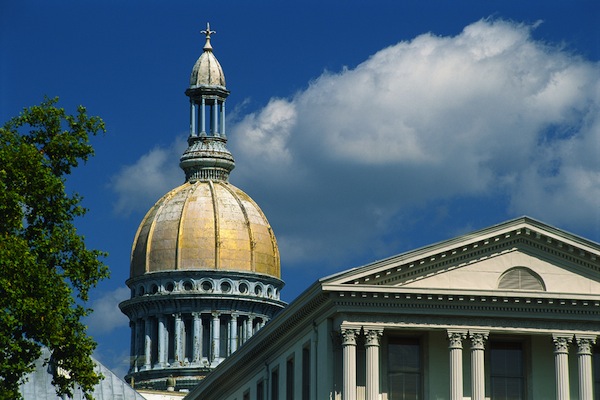Expensive NJ Primaries Result in Low Participation and Competition

 spirit of america / shutterstock.com
spirit of america / shutterstock.com
New Jersey is holding two elections this year: the general elections for the state Legislature and the governorship and a special election to fill the U.S. Senate seat left open by the loss of Senator Frank Lautenberg. With the end results already predictable, more attention should be given to the three flaws of the current system: low participation, little competition, and high costs.
The primary elections for the gubernatorial race were held on June 5, allowing members of the Democratic Party and the GOP to choose who will be on the November ballot. New Jersey is one of 18 states with a closed primary system that only allows registered party members and non-affiliated voters who register with a party on election day to vote in the primary.
Not only does this system disenfranchise the state's 2.6 million unaffiliated voters, 48 percent of all registered voters, but it also leads to a very low voter turnout. In the June 5 primary, only 7.7 percent of registered voters participated in the primary. This is the lowest voter turnout in a gubernatorial primary since 1925, the furthest records extend on the secretary of state's website.
The voter turnout for the special election's primary will likely be even lower for a number of reasons. The primary will be held in the middle of the summer on August 9, it will be the second election in 2 months voters need to participate in and there is a lack of competition.
Low voter turnout can indeed be explained by the lack of competitiveness of the primary elections.
On June 5, Chris Christie won the Republican primary with 92 percent of the vote; Democratic candidate Barbara Bueno was supported by 88 percent of primary voters. For the August primary, the latest polls show Corey Booker leading in the Democratic primary with 52 percent of the vote -- his closest contender only receiving 10 percent.
It is the same in the the Republican primary where Steve Lonegan tops Alieta Eck 62 percent to 5 percent in the polls. This lack of competition is not limited to the statewide races. While all the 120 seats in the Legislature are up for re-election, only 20 of them had contested primaries.
The third flaw of the New Jersey primary elections is that they are quite expensive for so little participation. The cost of two partisan primaries held in 2013 is estimated to be over $24 million, considering that the August primary alone is estimated to cost state taxpayers $12 million.
The New Jersey special elections, with a similar price tag, are seen as a waste of taxpayer money for partisan purposes; that is to say, avoiding Cory Booker and Chris Christie on the same ballot in the November election. Recent polls show 75 percent of New Jerseyans are bothered by these costs.
Shouldn't subsidizing an expensive primary system that excludes approximately half of the state's electorate and has less than 10 percent voter participation with public funds raise the same concern?
Across the country, organizations have been advocating for changes in the electoral process that would take power away from the political parties and back in the hands of the voters. Will New Jersey be the next?



